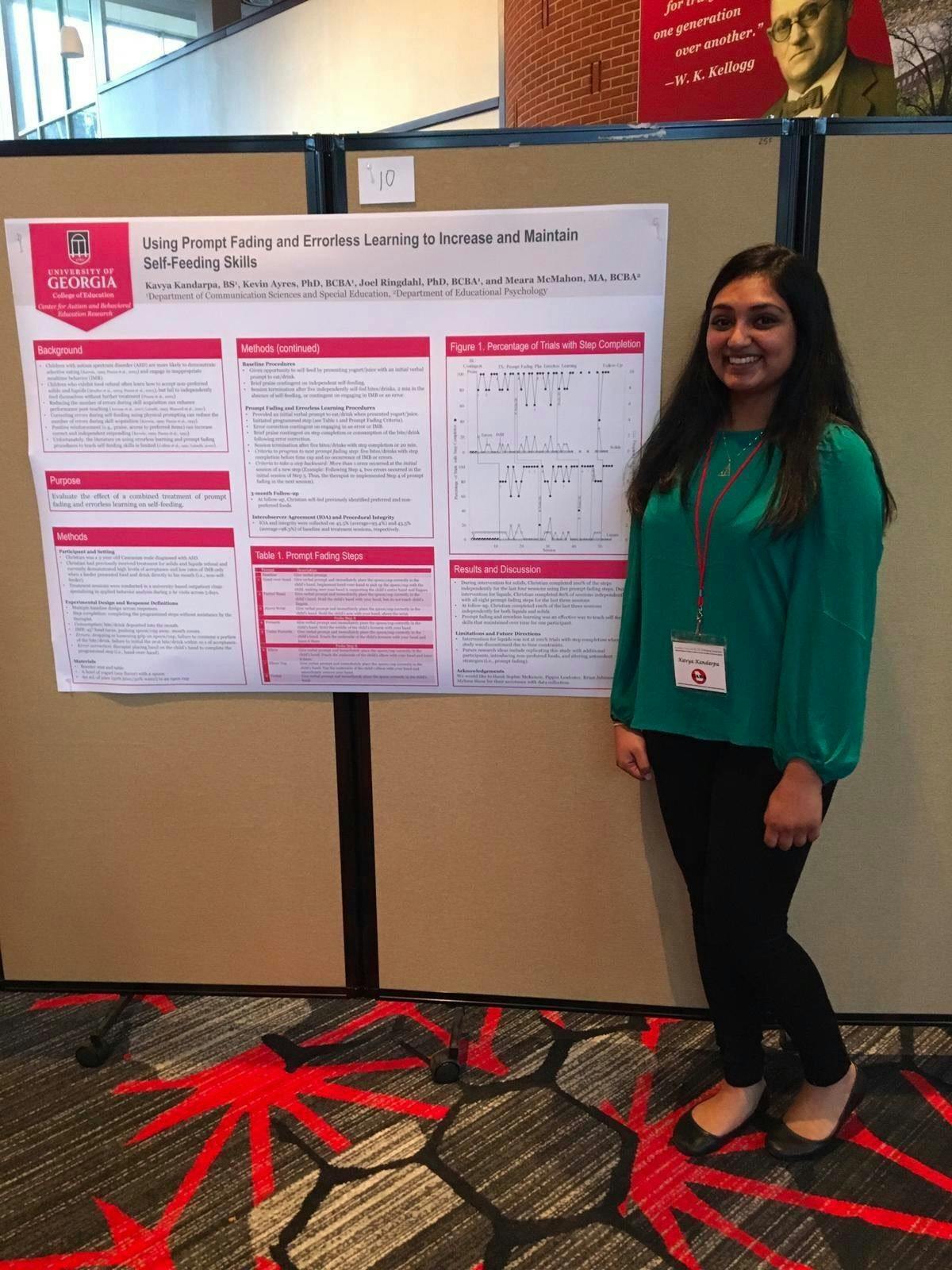Graduate student wins applied behavior analysis poster contest
Kavya Kandarpa, a master's student in the department of educational psychology, recently won a poster contest hosted by the Georgia Association for Applied Behavior Analysis, a professional network and resource center for behavior analysts in Georgia.

Using a multiple-baseline design for her study, Kandarpa's poster evaluates the effects of combining prompt fading with errorless learning—a form of teaching that prevents children from making mistakes when they are learning a new skill—on a participant's ability to increase and maintain self-feeding skills.
"The results showed that the participant was able to complete 100 percent of the steps correctly for solid foods and 80 percent of the steps correctly for liquids," said Kandarpa, who will graduate in 2020 with a master's degree in applied behavior analysis. "We did a follow-up three months later and saw that the participant was self-feeding both preferred and non-preferred items with 100 percent of the steps completed correctly."
For the past year and a half, Kandarpa has been using behavior analytic principles both in the classroom and in the UGA's Applied Behavior Analysis Clinic to enhance clients' academic skills and decrease unwanted or problematic behaviors.
"I have fallen in love with the work we do and have made strong connections with the students and staff," she said. "What sparks my passion for applied behavior analysis is when a student learns a skill. I know I picked the right path because I look forward to each day that I see my students."
After graduation, Kandarpa, who is currently studying to become a board-certified behavior analyst, plans to pursue a doctoral degree in school psychology and conduct research on behavioral and academic interventions in both school and clinical settings.
As an undergraduate research assistant, Kandarpa researched assessment and cognitive processes involved in medical decision-making in the department of psychology's Georgia Decision Lab. She will begin an internship at Marcus Autism Center in Atlanta next year.
"I am always open to new opportunities in this field," said Kandarpa. "I am very excited about where this field will take me."